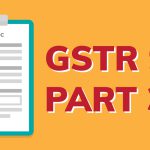Blog Post

Posted on July 3, 2025

Groww’s recent demat switch for mutual funds means that, by default, new mutual fund purchases on Groww are now held in your demat account rather than the traditional Statement of Account (SoA) or AMC folio format. Here’s what this change means for your mutual fund (MF) portfolio:
Key Implications of Groww’s Demat Switch:
Advantages of Demat Format:
Drawbacks of Demat Format:
Summary Table: Demat vs. SoA/AMC Folio
| Feature | Demat Format | SoA/AMC Folio Format |
|---|---|---|
| Where units are held | Broker’s demat account | AMC/RTA folio |
| Switching brokers | Restricted, extra steps | Easy, via any platform |
| Redemption flexibility | Through broker only | Via AMC, RTA, or any broker |
| Bank/nominee updates | Centralized | Per folio |
| Charges | Possible demat fees | Usually none |
| Pledging/transfer | Easier | More paperwork |
What Should You Do?
You can opt out of Groww’s demat switch at any time, and your existing investments will not be affected unless you choose to convert them.
Ref: Mutual Fund Investments at Groww Can Also Be Held in Your Demat Account
545 Views 0 comments
GST to Change the Face of Warehousing

Cases when ITC is not available under GST

GSTR 9C – Part II

GST Audit/Reconciliation and Certification (Form GSTR-9C)

Taxation of Indian Bank Account Income for NRIs: Key Rules and Guidelines

Taxation: History of Goods and Service Tax for India

GSTR 9C – Part III

Aten Papers & Foam IPO Day 1: Check subscription status and other details

Brookfield-Backed CleanMax Set for ₹4,000–5,000 Crore Confidential IPO

How your small pie of Tax builds the entire nation.
Comments